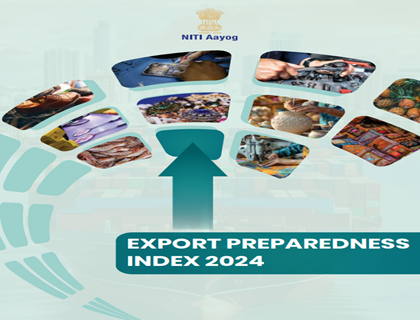Description
.jpg)
Disclaimer: Copyright infringement not intended.
Context
- The Reserve Bank of India (RBI) has issued a framework aimed at enhancing self-governance and compliance within the FinTech sector.
- The RBI envisages the SROs to promote a healthy balance between innovation and regulatory compliance in a manner that protects consumer interests.
_1.png)
Application Process
- Entities meeting or intending to meet the eligibility conditions outlined in the SRO-FT framework are required to submit applications.
- The RBI will review the applications and publish the names of eligible applicants for "recognition" on its website.
Objectives of SRO-FT
- Objective Operation: The SRO-FT is expected to operate objectively, with credibility and responsibility under the oversight of the RBI.
- Promoting Sector Development: It should strive towards promoting healthy and sustainable development within the FinTech sector.
- Regulatory Compliance: The SRO-FT may identify a glide path towards phased regulatory and/or supervisory compliance if deemed necessary.
Eligibility Criteria for Applicants
- Not-for-Profit Entity: The applicant should be set up as a not-for-profit company, ensuring its primary focus is on sector development rather than profit.
- Diversified Shareholding: Shareholding should be sufficiently diversified, with no single entity holding 10% or more of the paid-up share capital
_3.png)
|
Function
|
Description
|
|
Standard Setting
|
- Establish standards through a consultative process
- Frame a code of conduct for members, including regulations on advertisements
- Set industry benchmarks and baseline technology standards
- Develop standardized contracts/documents for members
- Create baseline governance standards
|
|
Oversight and Enforcement
|
- Develop structured frameworks for oversight and enforcement functions
- Implement surveillance mechanisms to monitor non-compliance
- Provide counselling on restrictive, unhealthy, and detrimental practices
|
|
Developmental
|
- Promote understanding of regulatory requirements through knowledge transfer and training programs for members
- Encourage a culture of research and development (R&D) and innovation
|
|
Grievance Redress
|
- Establish grievance redress and dispute resolution frameworks for members
- Ensure efficiency, fairness, and transparency in grievance redress processes
- Work towards consumer awareness on products and services
|
|
Reporting Obligations
|
- Furnish information/consultation to the RBI as required
- Consult the RBI in developing and updating the taxonomy for fintechs
- Submit an annual report to the RBI on activities or periodic returns as prescribed
|
Conclusion
- The issuance of the SRO-FT framework by the RBI signifies a proactive approach towards enhancing governance and compliance within the FinTech sector.
- By encouraging self-regulation through a structured framework, the RBI aims to foster a conducive environment for the sustainable growth of FinTech firms while ensuring regulatory oversight and compliance.
|
PRACTICE QUESTION
Q. Examine methods to enhance self-governance and compliance in FinTech. Address challenges in regulating innovation while upholding ethical standards. Recommend strategies for balancing innovation with regulatory oversight.
|
SOURCE: Business-Standard




.jpg)
.jpg)
_1.png)
_3.png)








